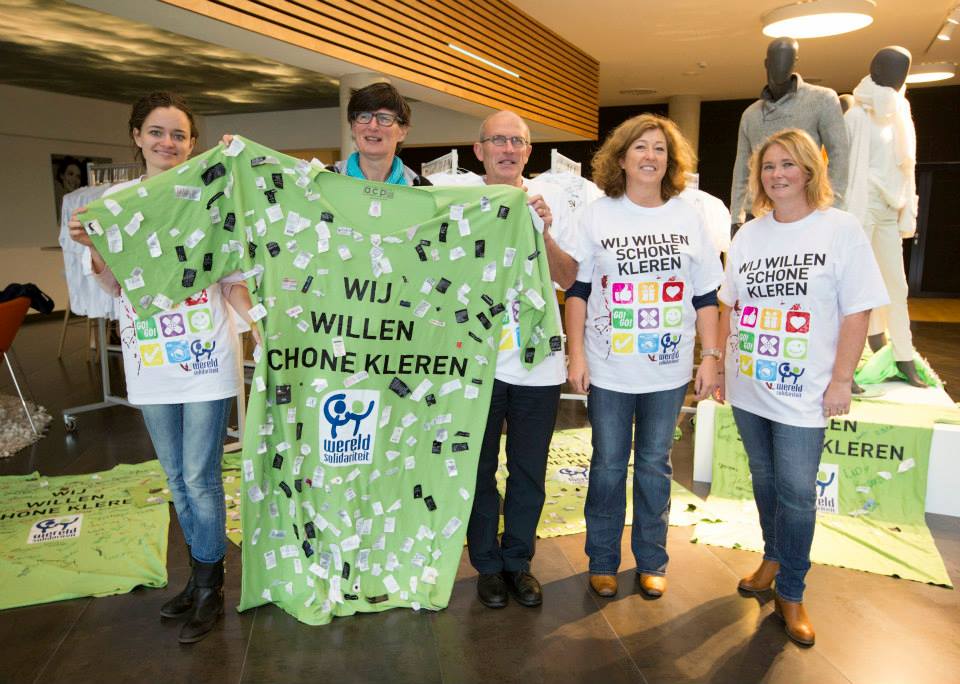The following is an op-ed by the witness signatories to the Accord published in the Bangladeshi paper, the Daily Star.
 |
| c Daily Star |
In reaction to recent statements concerning the future of the Bangladesh Accord, the Witness Signatories to the Accord on Fire and Building Safety in Bangladesh—Clean Clothes Campaign, International Labor Rights Forum, Maquila Solidarity Network, and the Worker Rights Consortium—wish to respond regarding the continuation of the Accord's inspection programme. Recent statements have led some to erroneously believe that the Accord is scheduled to end in 2018, and one should ask whether such an early departure is even desirable given the limited progress made in the development of a credible and functioning national safety regulatory body.
In the wake of the Rana Plaza building collapse—the deadliest disaster in the history of the global garment industry, in which 1,134 workers were killed—three initiatives were launched with the purpose of averting further industry tragedies in Bangladesh: the Accord on Fire and Building Safety in Bangladesh (Accord), the Alliance for Bangladesh Worker Safety (Alliance), and the National Action Plan on Fire Safety and Structural Integrity (NAP).
The Accord is an agreement reached between over 200 apparel companies, eight Bangladeshi union federations, and two global unions. This unprecedented safety agreement is based on legally-binding commitments by apparel brands to ensure that hazards in their factories are identified and corrected. The Accord has overseen factory renovations—from installation of fire doors to strengthening of dangerously weak structural columns and beams—that have already improved safety for over two million garment workers. This success can be attributed to the Accord's distinct approach, which combines independent safety inspections with multi-brand leverage, financial support and legal accountability to ensure that problems are not only identified but are fixed.
In comparison, the Alliance and the NAP are smaller, less transparent, non-binding programmes that do not benefit from the same level of brands' commitment to change, especially when it comes to financial feasibility.
To ensure that the safety improvements achieved under the Accord are maintained and expanded, brand and union signatories of the Accord announced in June of 2017 that the Accord has been extended for three years, until May of 2021. To date, 48 companies, including H&M, Inditex (Zara), Primark, and PVH (Tommy Hilfiger, Calvin Klein), have signed the new Accord, with many more likely to follow in the months ahead. These signatories represent many of the largest brands and retailers in the world and most of the Bangladesh RMG sector's key customers. Their combined commitment means that the 2013 Accord successor agreement will cover at least 1,400 factories and a majority of all export garment production.
The purpose of the renewed Accord, which takes effect in May of 2018 when the current 2013 Accord expires, is to ensure that factories made safe under the Accord remain safe. At the same time, the new Accord will support improvements to Bangladesh's public regulatory regime, in order to strengthen and pass on this responsibility to the Bangladesh government at the end of those three years. As was agreed to in meetings on October 19 between brand and trade union signatories to the Accord, the BGMEA, and the Bangladesh Ministers of Commerce and Labour, the Accord will continue this work until the local regulatory bodies meet a set of rigorous readiness conditions.
It remains to be seen how long this transition will take; however, any objective assessment of the government's current state of readiness will conclude that there is a lot of work to do. In order for the Accord to conclude its operations, local mechanisms must be developed, put in place, and demonstrably running smoothly to ensure safe working conditions for the country's four million garment workers.
























